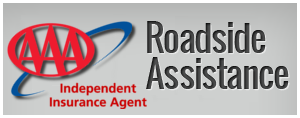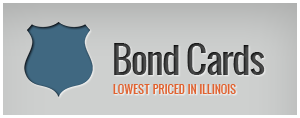Auto insurance can be confusing. At Public, we strive to make auto insurance as simple as possible. These are the car insurance coverages required in Illinois and the most common and important types of insurance.
State Minimum Liability Limits in Illinois
The state of Illinois requires drivers to have 3 types of Liability coverage. Bodily Injury (BI), Property Damage (PD), and Uninsured Motorist Bodily Injury (UM)
- Bodily Injury (BI)– pays for costs due to injury or death that you, the covered driver, cause to passengers in another car or pedestrians in the event of an accident. The minimum required limits for BI are $20,000 per person injured and $40,000 total per accident
- Property Damage (PD)– pays for damage to another person’s car or property like a fence, street sign, buildings, etc that is damaged in an accident. The minimum required limit for PD is $15,000 per accident
- Uninsured Motorist Bodily Injury (UM)– covers bodily injury costs that happen to you caused by a hit-and-run driver or if the person that hits you does not have insurance. The minimum required limits for UM are $20,000 per person and $40,000 total per accident
Comprehensive and Collision Car Insurance Coverage
Comprehensive and Collision coverage pays for damage done to your vehicle, but usually has a deductible of either $250, $500, or $1000. This car insurance coverage is not required by the state of Illinois.
- Collision– pays for the damage done to your car that was caused by a collision with another vehicle or a fixed object, such as a tree.
- Comprehensive– pays for damage done to your car that was NOT caused by a collision with another vehicle. It does cover theft, vandalism, breakage of glass, wind, water damage, hail, and damage caused by an animal. Comprehensive is sometimes referred to as “Other than Collision”
Together, Comprehensive and Collision, make up Physical Damage coverage. A higher deductible has a cheaper premium because you must pay the amount of the deductible before your coverage kicks in. For example, say you have a $1000 deductible…if there was $4000 in damage to your car, you would pay the first $1000 and the insurance company pays the remaining $3000. If your deductible was $250, the insurance company would pay the remaining $3750, which is why a lower deductible cost more. The most common deductible for comprehensive and collision is $500.
Additional Coverage
- Medical Payments– pays for medical and funeral expenses if you or your passengers are injured or killed in an accident. It also covers you and your family members if hit by a car while walking or riding in another car. Medical payments pay even if you cause the accident.
- Uninsured Motorist Property Damage– pays for damage to your car if you are hit by an uninsured, at-fault, and identifiable driver. You can NOT have this coverage if you have Collision. It will pay a maximum of $15,000 and is subject to a $250 deductible.
- Rental Reimbursement– pays a certain amount per day for you to rent a vehicle while yours is being repaired for a covered loss. Rental reimbursement is very inexpensive to add on your policy.
- Towing- pays for either all or part of the cost to tow your disabled car to a repair shop. Towing is very cheap to add on your policy.
- Emergency Roadside Service– 24 hour service for emergency road service, delivery of supplies (fuel, oil, etc.), battery service, tire change, mechanical breakdown, and towing.
- Bond Cards– presenting a bond card to an officer during a traffic stop will allow you to keep your license. Having a bond card will save you a lot of headaches if you get pulled over.
If you have any questions give us a call at 773-725-9333 and one of our expert insurance agents will be glad to help you out! Or enter your zip code to get a Quote right now.
Drive Safe!
*The above is meant as general information and as general policy descriptions to help you understand the different types of coverages. These descriptions do not refer to any specific contract of insurance and they do not modify any definitions expressly stated in any contracts of insurance. We encourage you to speak to your insurance representative and to read your policy contract to fully understand your coverages.





